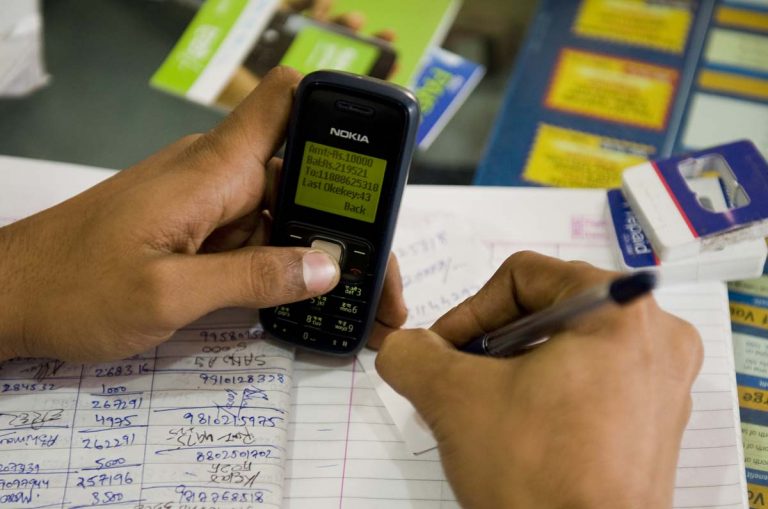
The rise of mobile money across Africa in the past few years is revolutionizing savings across the continent, ushering in a transformative era of financial inclusion.
With the increased rate of mobile phone penetration and access to the internet, millions of people are now able to access financial services conveniently and affordably, highlighting a significant shift toward formal savings enabled by mobile money.
Mobile money has democratized access to savings accounts, allowing individuals from all socioeconomic backgrounds to participate in formal financial systems. This inclusion is particularly impactful for marginalized communities, such as women, rural dwellers, and low-income earners, who may have been excluded from traditional banking services in the past.
Register for Tekedia Mini-MBA edition 18 (Sep 15 – Dec 6, 2025) today for early bird discounts. Do annual for access to Blucera.com.
Tekedia AI in Business Masterclass opens registrations.
Join Tekedia Capital Syndicate and co-invest in great global startups.
Register for Tekedia AI Lab: From Technical Design to Deployment.
It offers users convenience, which eliminates the need for physical bank branches and long queues, making it easier for people to save money. With a few taps on their phones, users can deposit and withdraw funds and even set up automated savings plans.
Also, it offers users flexibility, enabling them to choose from various savings products tailored to their needs, such as basic savings accounts fixed deposits, or even mobile-based investment platforms. This flexibility empowers individuals to manage their savings according to their financial goals.
Here are some additional ways mobile money is influencing the savings culture in Africa:
Entrepreneurship and Investment: Mobile money savings can serve as a foundation for entrepreneurship and investment. By accumulating savings over time, individuals can access capital to start small businesses, invest in education or vocational training, or participate in income-generating activities that contribute to their long-term financial stability.
Financial Security Nets: Mobile money serves as a financial security net for many Africans, especially during times of economic uncertainty or emergencies. By saving money on mobile money platforms, individuals can create a safety net to fall back on in case of unexpected expenses, health emergencies, or loss of income.
Microsavings: Mobile money makes it possible to save even small amounts of money regularly, known as microsavings. This practice encourages a savings habit among individuals who may have limited disposable income, as they can incrementally build their savings over time, no matter how small the amount.
It is worth noting that Mobile money has had a more dramatic effect on saving practices in some countries across Africa compared to others. In Kenya for example, the share of adults who saved money was about 70% in both 2017 and 2021.
However, the share who saved formally increased in that time by 18 percentage points to 45% in 2021. This means that almost 70% of savers use an account, including 35% of savers (almost a quarter of all adults) who only use their mobile money account to save.
According to a 2023 GSMA report, women have particularly benefitted from the convenience that mobile money offers for saving. In Senegal, for instance, only 6% of women Saved using a traditional bank or similar financial institution account as of 2021, around four times more women chose mobile money.
Similar trends were observed in Kenya, Uganda, and Zambia, where the share of women saving via mobile money accounts was more than double that of women using banks or similar accounts.
Mobile money offers a convenient and essential alternative to women who may otherwise find it difficult to travel to a bank due to transport costs, family responsibilities, or social norms. Earlier editions of Global Findex found that before mobile money became available, even women with traditional bank accounts relied ‘on semi-formal saving methods.
The appeal of mobile money lies in its ability to facilitate frequent sometimes daily, low-value savings deposits through a cost-effective and convenient model. This effectively breaks down the barriers of cost, distance, and convenience that many customers face.
While mobile money accounts may not always incorporate formal savings features, the landscape is evolving, Innovative models are also emerging, aimed at digitizing semi-formal savings.
This includes a mobile phone, regulations that encourage interoperability between MPs and interest-bearing accounts, as well as stronger consumer protections to ensure that mobile savers have avenues for recourse in case of fraud or mistakes.
Overall, mobile money is playing a transformative role in shaping savings behavior in Africa by making financial services more accessible, affordable, and inclusive. As the adoption of mobile money continues to grow, it holds the potential to drive widespread economic empowerment and prosperity across the continent.



